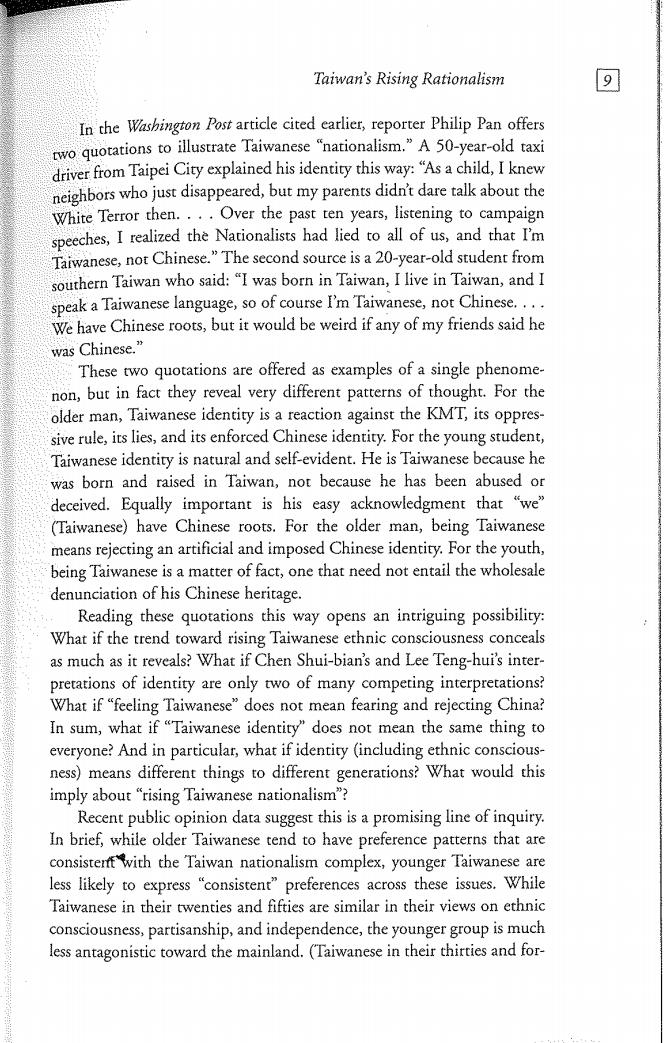正在加载图片...

Taiwan's Rising Rationalism 9 In the Washington Post article cited earlier,reporter Philip Pan offers wo quotations toillustrate Taiwaneseationalism."A50-yearold tax driver from Taipei City explained his identity this way:As achild,I knew neighbors who just disappeared,but my parents didn't dare talk about the White Terror then...Over the past ten years,listening to campaign speeches,I realied the Nationalists had lied to all of us,and that I' Taiwanese,not Chinese."The second source is a 20-year-old student from southern Taiwan who said:"I was born in Taiwan,I live in Taiwan,and I speak a Taiwanese language,so of course I'm Taiwanese,not Chinese.. We have Chinese roots,but it would be weird if any of my friends said he was Chinese..” These two quotations are offered as examples of a single phenome- non,but in fact they reveal very different patterns of thought.For the older man,Taiwanese identity is a reaction against the KMT,its oppres- sive rule,its lies,and its enforced Chinese identity.For the young student, Taiwanese identity is natural and self-evident.He is Taiwanese because he was born and raised in Taiwan,not because he has been abused or deceived.Equally important is his easy acknowledgment that "we" (Taiwanese)have Chinese roots.For the older man,being Taiwanese means rejecting an artificial and imposed Chinese identity.For the youth, being Taiwanese is a matter of fact,one that need not entail the wholesale denunciation of his Chinese heritage. Reading these quotations this way opens an intriguing possibility: What if the trend toward rising Taiwanese ethnic consciousness conceals as much as it reveals?What if Chen Shui-bian's and Lee Teng-hui's inter- pretations of identity are only two of many competing interpretations? What if "feeling Taiwanese"does not mean fearing and rejecting China? In sum,what if "Taiwanese identity"does not mean the same thing to everyone?And in particular,what if identity(including ethnic conscious- ness)means different things to different generations?What would this imply about"rising Taiwanese nationalism? Recent public opinion data suggest this is a promising line of inquiry. In brief,while older Taiwanese tend to have preference patterns that are consistertt with the Taiwan nationalism complex,younger Taiwanese are less likely to express"consistent"preferences across these issues.While Taiwanese in their twenties and fifties are similar in their views on ethnic consciousness,partisanship,and independence,the younger group is much less antagonistic toward the mainland.(Taiwanese in their thirties and for-